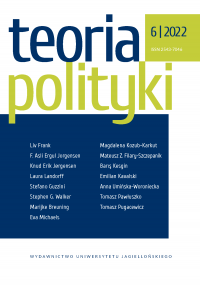We Were Taken on the Ride. Leadership Traits Analysis in the Circumstances of International Crisis – the Decision of Aleksander Kwaśniewski in the Context of Intervention in Iraq
We Were Taken on the Ride. Leadership Traits Analysis in the Circumstances of International Crisis – the Decision of Aleksander Kwaśniewski in the Context of Intervention in Iraq
Author(s): Anna Umińska-WoronieckaSubject(s): Political behavior, Peace and Conflict Studies
Published by: Wydawnictwo Uniwersytetu Jagiellońskiego
Keywords: foreign policy analysis; leadership traits analysis; leadership profiling; Profiler+;
Summary/Abstract: The present paper examines the impact of personal characteristics of head of state on the foreign policy behaviour. The article is based on the assumption that during a crisis or war, compared to peaceful times, leaders are under a greater influence of their personal traits and cognitive determinants, including their biases and beliefs. The chosen method is the LTA coding system, as it allows obtaining measurable results showing which traits of the leaders are meaningful and how they determine leaders’actions in different situations (crisis and lack thereof). The aim of this paper is to analyse the personality-based decision-making determinants in foreign policy in the context of an international conflict based on the example of Aleksander Kwaśniewski’s presidency (1995–2005). The analysis focuses on the president’s decisions and their psychological background during over a year long period preceding the invasion of Iraq by the coalition forces (March, 2003) and his statements made between 1995 and 2001 with the objective of identifying potential differences in leadership style of an individual decisionmaker in two different situations, one of which meets the definition of an international crisis. The research proves that in the conditions of a crisis, the president trends a higher belief to be able to control events, reduced conceptual complexity, and enhanced the need for power. Using available evidence on Polish decision-making, the paper shows how Kwaśniewski’s personality and leadership style did indeed shape both the process and outcome of foreign policy toward the Iraq War. It allows identifying his leadership style in the period preceding the invasion of Iraq that started in March 2003.
Journal: Teoria Polityki
- Issue Year: 2022
- Issue No: 6
- Page Range: 215-235
- Page Count: 21
- Language: English

